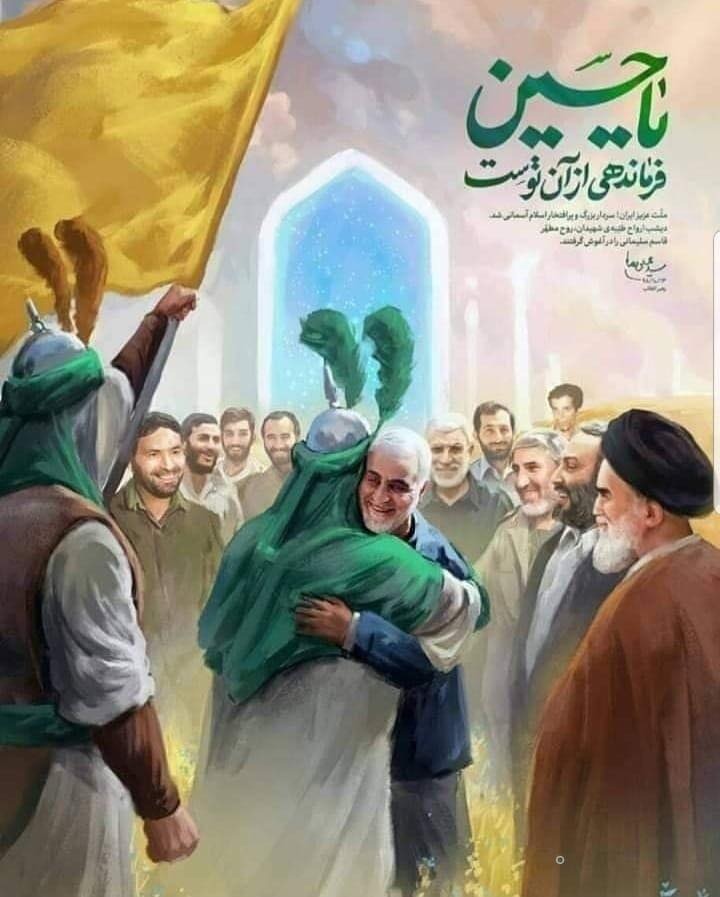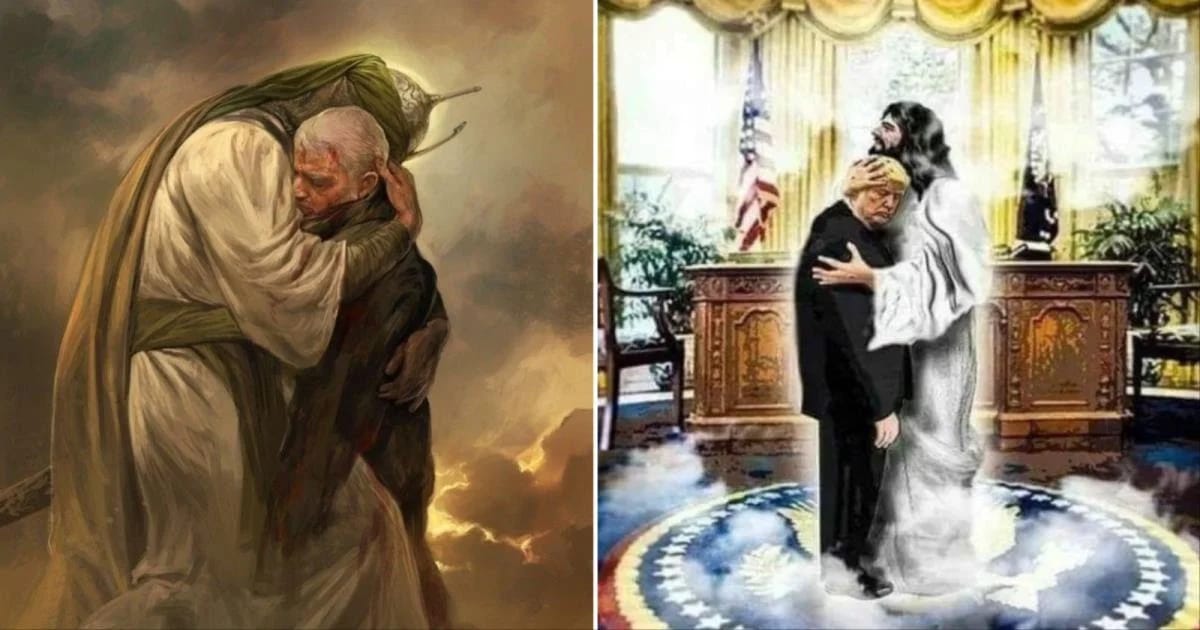DUBAI: It was not at all surprising, following the successful US strike that killed the commander of the Quds brigade Qassem Soleimani, that the Iranian media would attempt to ease the big blow to the regime in Tehran by portraying the late Soleimani as a “martyr” - who actually always wanted to be killed to gain this alleged honor.
This was reinforced by Hezbollah leader Hassan Nasrallah reiterating that Soleimani always wanted to be killed on the battle field.
Nasrallah told mourners on Sunday: “On Thursday evening, January 2, 2020, Qassem Soleimani, the dear beloved brother, fulfilled his biggest and most wanted dream… it has been his dream since he was a youth who joined the Iranian battle grounds, and he continued holding that dream and that goal.
Meanwhile, the official website of Supreme Leader Ayatollah Ali Khamenei published a photo illustration showing Soleimani in an embrace with a figure alluding to be Imam Hussain ibn Ali.
Another Iranian newspaper, Resalat, published an illustration depicting Soleimani being greeted in Heaven by Imam Hussain and Aytollah Khomeini.

In response to the image, many Americans and pro-Trump supporters on social media circulated an illustration of Jesus embracing US President Donald Trump - in what seemed to end a Twitter tug-of-war of who actually owns Heaven.

However, it wasn’t only non-Muslims who believed Soleimani was not exactly Heaven material. Many Muslim intellectuals, social media influences and columnists condemned Soleimani for the turmoil the militias he commanded brought upon the region.
His crimes included the leading, arming and training of mainly Shiite militia groups, as well as launching wars directly or indirectly via these proxies.
He also fomented unrest in other nations to advance Iran’s ideological and hegemonic interests, while attacking and invading cities and countries; and assassinating foreign political figures and powerful Iranian dissidents worldwide.
However, the Iranian media started manipulating the truth as soon as Soleimani was killed. Iraqis celebrating on the street were portrayed as condemning America by Iranian media.
As Saudi Arabia, regional powers and world leaders called for the easing of tensions in the aftermath of the attack, pro-Iranian media was propagating the opposite.
Iranian-backed Lebanese broadcaster Al-Mayadeen, which is affiliated with Hezbollah, began to use the hashtag #الرد_الحتمي meaning “inevitable retaliation” on its digital platforms.
The director of the Beirut-based channel Ghassan bin Jiddo even portrayed Soleimani as a “martyr”, saying the channel had received an image of him dying with a Quran in his hand, despite having been killed in rocket attack that burned the vehicle he was in.
Jiddo also described Soleimani as a “brave leader” and also falsely claimed that Israel – alongside the US – was behind the attack.
“It is well known that some groups that hold an ideology inconsistent with logic have resorted to the absence of awareness of illogical ideas. Such groups aim mainly to plunge their members into irrational thoughts for the purpose of facilitating their leadership. If we apply that rule to what the Al-Mayadeen channel and other propaganda tools of the Iranian regime mention, we will find it fully applicable to them,” Egyptian multimedia journalist Abdelatif Menawy said.
“The main goal is to drown people into delusion and sorcery and give them narcotic media materials so that they cannot reasonably think. Logical thinking will push people to change,” Menawy added.
Like Al-Maydeen, the Hezbollah affiliated Al-Manar channel have also been referring to the criminal general as a “martyr” – a rhetoric pro-Iranian media has been attempting to spin since the general’s death.
Al-Manaer, which had its channel banned from YouTube, also published a video report that portrayed Soleimani as a “martyr.” The channel also published a video report showing Soleimani saying he wished to become a martyr.
In a piece printed in the Tehran Times on the day of Soleimani’s death, Syed Zafar Mehdi wrote that “last year the Supreme Leader Ali Khamenei wished martyrdom for his brave soldier” and that wish came true on Friday.
Like other international media organizations, Al-Jazeera was also one of the publications following the developments of the attack closely. On the day of Soleimani’s death, Al-Jazeera reported on the “popularity” of the general in Iran and failed to mention his history of crimes in Syria, Yemen and Iraq.
Additionally, when it was revealed that the US had launched the attack from Qatar, the Doha-funded channel failed to report this, on both their English or Arabic platforms.
Jamal Rayyan, an Al-Jazeera anchor, Tweeted claiming the attack was launched from the UAE and not Qatar. Rayyan also went on to claim that Israel had carried out the attack through Trump.
Other Qatar-affiliated media, including the London based The New Arab, referred to Soleimani in their reports as a “welcomed hero” during his funeral in Iran. The New Arab also published a bio on the general, but failed to include any of his crimes.





















